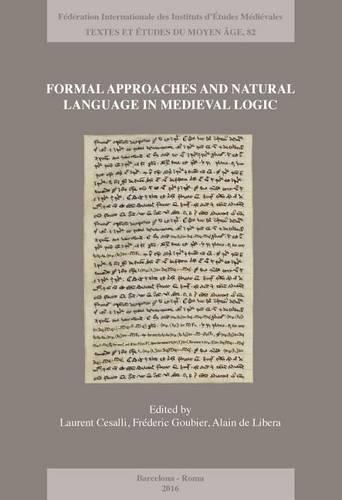Formal Approaches and Natural Language in Medieval Logic

Formal Approaches and Natural Language in Medieval Logic
Is medieval logic formal? And if yes, in what sense? There are striking affinities between medieval and contemporary theories of language. Authors from the two periods share formal ambitions and maintain complex, and at time uneasy, relations with natural language. However, modern scholars became careful not to overlook the specificities of theories developed more than five hundred years apart, in particular with respect to their ‘formal’ character. In 1972, Alfonso Maieru noted that the efforts of medieval logicians to identify logical structures in language formal enough to become objects of scientific consideration. He also stressed that the language investigated is a historical one, Latin, so that one can legitimately wonder to which extent … one is allowed to speak of ‘formal logic’ in the middle ages. In other words, medieval logic is characterized by a tension between ‘formalist ambitions’ and constraints proper to natural language. Today, our knowledge of the field has considerably expanded, calling for a new assessment of the question.
This item is not currently in-stock. It can be ordered online and is expected to ship in approx 4 weeks
Our stock data is updated periodically, and availability may change throughout the day for in-demand items. Please call the relevant shop for the most current stock information. Prices are subject to change without notice.
Sign in or become a Readings Member to add this title to a wishlist.


